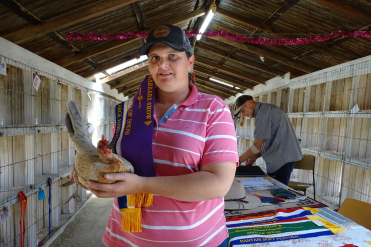Ageism is the most socially acceptable prejudice on the planet, according to the World Health Organization (WHO). Stereotypes, prejudice and discrimination toward people because of their age is more normalized than even racism or sexism.
But to date, no one has established whether interventions that claim to change ageist attitudes actually work.
Now a team of researchers led by Cornell has shown, for the first time, that it is possible to reduce ageist attitudes, prejudices and stereotypes. Programs that foster intergenerational contact, combined with education about the aging process and its misconceptions, worked best at reducing ageist attitudes, according to their study, published June 20 in the American Journal of Public Health.
“The most surprising thing was how well some of these programs worked,” said co-author and gerontologist Karl Pillemer, the Hazel E. Reed Professor in the Department of Human Development. The WHO, which recruited the Cornell-led team to do the study, will use the research to inform its global anti-ageism strategy.
“If we teach people more about aging – if they’re less frightened of it, less negative about it and less uncomfortable interacting with older people – that helps,” Pillemer said. “If we get them into contact with older people, where they’re getting to know each other, that also helps. And if you put those two things together, we found that works best of all.”
The interventions had the greatest impact on women, teens and young adults, according to the study.
Society is rife with ageist attitudes, from jokes in television and movies depicting older people as buffoons with memory problems, to workplace discrimination where older people are seen as unable to keep up with technology. “People believe that older people are mentally deficient, that they are less likely to be competent,” Pillemer said.
These macro- and microaggressions can have serious negative effects on the mental and physical health of older people, said Pillemer, the senior associate dean for research and outreach in the College of Human Ecology and professor of gerontology in medicine at Weill Cornell Medicine. Physicians with ageist attitudes may misdiagnose their older patients, for example, or exclude them from particular treatments.
Moreover, older people tend to adopt society’s negative attitudes toward aging – and those who do are more likely to experience psychological distress and physical illness. They even die 7.5 years sooner on average than those who have a more positive attitude about aging, according to research by Yale psychologist Becca Levy, another member of the WHO ageism project.
“Everybody, if they’re lucky enough, is going to become an older person,” Pillemer said. “Ageism eventually affects every member of a society.”
The researchers analyzed 63 studies, conducted between 1976 and 2018, with a total of 6,124 participants. The studies evaluated three types of interventions that aimed to curb ageism: education; intergenerational contact; and a combination of the two.
Most of the education interventions targeted college students or graduate students in health-related fields. A medical school curriculum, for example, included information on the positive aspects of aging and how students can become aware of their own negative stereotypes that might affect the way they treat older people.
In contact programs, high school students interviewed older adults about their life histories, and older adults tutored elementary school students or played games and did crafts with them.
The most successful programs combined both education and intergenerational contact, said lead author David Burnes of the University of Toronto.
“When both components are in place, you’re helping people see aging in a more realistic and positive way,” he said, “and you’re increasing familiarity, breaking down some of those misconceptions that may exist between two different age groups.”
Importantly, Pillemer said, these interventions are both low-cost and easy to replicate.
“Volunteer organizations and after-school programs should think about involving some of these methods to reduce ageist attitudes,” he said, “because they are effective and easy to implement.”
The WHO will use the research to create an upcoming global report on ageism. “We know from past experience that these reports can be particularly effective at raising awareness, generate more political will on a topic and provide an evidence based framework for global and local action,” said Alana Officer, who leads the WHO’s campaign against ageism. “I hope that the Cornell-led research will help change the world for the better.”
The paper was co-written by Christine Sheppard of the University of Waterloo, Ontario; Charles Henderson Jr., senior researcher in Cornell’s Department of Human Development; Monica Wassel and Richenda Cope of Cornell’s Bronfenbrenner Center for Translational Research; and Chantal Barber of the University of Toronto.








